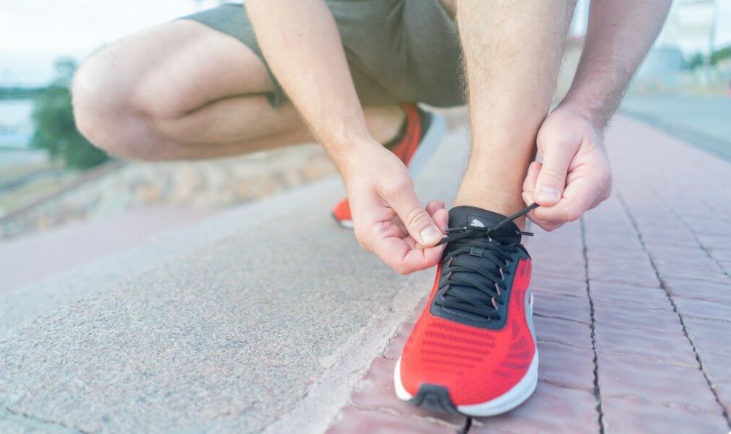The US running shoe market is as dynamic and competitive as the athletes who rely on these products. As consumer preferences shift and new trends emerge, it’s crucial for brands to have the right data to stay ahead of the curve.
In this blog post, we dive into the latest market insights from Q1 2024, revealing how top running shoe brands in the US are navigating the competitive landscape and driving growth.
Nike’s losing the lead
Nike.com, the world’s top sports brand, experienced a notable decline in traffic over the past two years to its running shoe category, falling from double the amount of traffic compared to key competitors in March 2022 to being matched by Brooks Running in March 2024. That trend has reversed in May with Nike going from 3.6M visits to 5.3M (a monthly rise of 41%). Nevertheless, the changes in the market highlight the importance of keeping track of the competition and building strong product and marketing differentiation in a crowded space.
Retailers vs. brands: Who’s crossing the finish line?
Interestingly, large retailers like Dick’s Sporting Goods and REI are receiving similar unique visitor traffic volumes to the top specialized running shoe brands New Balance and HOKA. On average, dickssportinggoods.com has a traffic share of 17.1% and 1.5M unique visitors, while hoka.com grabs 11.9% and 909K visitors. Rei.com, another leading sports retailer, is close behind and virtually matches the performance of newbalance.com with 10.5% and 10.4% traffic share, respectively, and 850K vs. 892K unique visitors.
New Balance’s steady run
Despite being the second largest website in the competitive set (after Nike), newbalance.com’s 14% year-over-year (YoY) growth in 2024 remains impressive, especially considering its already substantial traffic volume. This steady increase underscores the brand’s market position and effective digital growth. For comparison, asics.com and brooksrunning.com have grown almost double, 24% and 23%, respectively, but have half the visitor volume as New Balance.
HOKA’s meteoric rise
Hoka.com has marked a phenomenal year having experienced 59% YoY growth in website traffic in April 2024, outpacing both Brooks Running and ASICS. This surge in traffic highlights HOKA’s growing market share and strong recognition. Below we explore some of the marketing tactics driving its brand and consumer loyalty.
Direct and paid search are the new running track
Our analysis shows that website growth in the running shoe market is increasingly driven by direct and paid search traffic, while referral traffic has seen a decline over the last year. Hoka is the only brand in the set to grow organic traffic.
When looking at the top organic pages for hoka.com, we see that most traffic goes to the homepage (37.5%). However, its popular brand pages – Clifton 9, Bondi 8, and Mach 5 – also receive considerable traffic, indicating people know what they want and are searching for specific shoes by Hoka.
Direct traffic: Building brand loyalty
Hoka.com also experienced growth in direct traffic. Over the past year, it has not only closed the gap but also overtaken New Balance in direct traffic, indicating a shift in consumer loyalty towards Hoka. Although newbalance.com remains almost double the size of hoka.com in total traffic, Hoka has matched New Balance’s month-over-month (MoM) growth rate in direct traffic in May.
Hoka’s brand recognition is partly due to partnering with influencers such as Sports Illustrated, Runners World, and Run to the Finish – all leading destinations for running enthusiasts – which are sending 4.6%, 6.2%, and 2.5% of incoming traffic to its website, respectively.
Paid search: Capitalizing on consumer demand
Looking at the marketing channel mix, we see that paid search traffic has increased by 25-55% across all major players, reflecting higher consumer demand and intense competition. This trend also aligns with Google’s shift towards prioritizing paid search over organic search, making it crucial for brands to invest smartly in their paid search strategy.
Branded search picking up speed
We can also see that shoe brands are competing for branded keyword traffic, with some even bidding on their competitors’ branded search terms.
Brooks Running and ASICS are targeting HOKA-related search terms, while HOKA is focusing on New Balance-related terms. This competitive strategy highlights the need for brands to protect their branded search traffic and capture high-intent shoppers before competitors do.
The running shoe market is an example of an ecommerce space that is evolving quickly, with brands vying for consumer attention through strategic use of direct, organic, and paid search traffic. As the competition heats up in your space, it’s crucial for you as a marketer to stay informed and adapt your strategies accordingly.
Source: Similarweb

